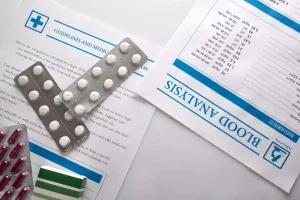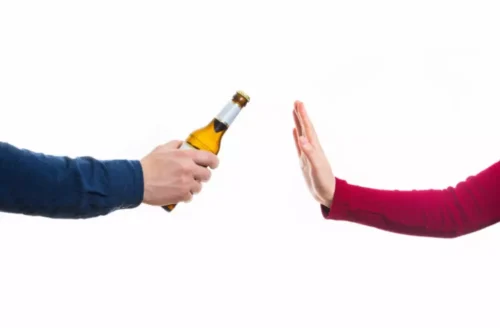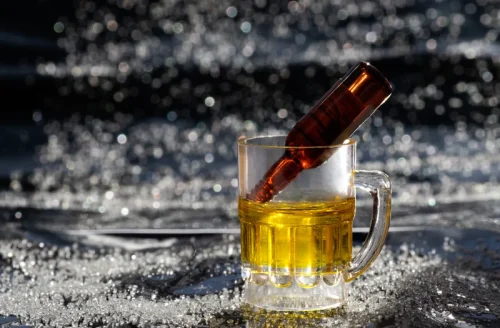
A person who drinks excessive alcohol may not be the first to realize it is a problem. Excessive or inappropriate consumption of alcohol is not necessarily the same as alcohol dependence. People who have AUD may continue to use alcohol even though they know it is causing social, health, economic, and possibly even legal problems in their life. Clinical evidence suggests that the most common causes of relapse during this stage are neglecting self-care or not attending self-help groups. Some people may feel so “broken” that they almost feel they can no longer experience joy and confidence, or have healthy relationships again.
How can I prevent alcohol use disorder?
- In the 1980s and 1990s, for instance, alcohol in moderation, and especially red wine, was touted as healthful.
- However, if a person is willing to get the treatment they need at an alcohol rehabilitation center, they have a much greater chance of becoming sober than they would if they attempt the process alone.
- This is of particular concern when you’re taking certain medications that also depress the brain’s function.
- Many years ago, those who struggled with alcohol addiction or dependency were considered to be people with weak morals who were missing the strong characteristics needed to overcome their struggles.
Alcoholism, an informal term used to describe an alcohol use disorder (AUD), can be successfully treated, but using the term “cured” can lead to misunderstanding. In addition to counseling and support groups, several medications are available to help you curb your drinking. Alcoholism can also cause mental health problems (depression and anxiety), as well as problems with relationships and work. If you want to take steps to get treatment for your AUD, make an appointment with your doctor. They’ll likely ask you a series of questions to determine the severity of your dependency.
Medications
A common initial treatment option for someone with an alcohol addiction is an outpatient or inpatient rehabilitation program. It can help someone handle withdrawal symptoms and emotional challenges. https://ecosoberhouse.com/ Outpatient treatment provides daily support while allowing the person to live at home. Psychotherapy, usually cognitive behavioral therapy, is an important part of an alcoholism treatment program.
Brain Responses in Chronic Pain and Alcohol Use Disorder

Drugs used for other conditions — like smoking, pain, or epilepsy — also may help with alcohol use disorder. Talk to your doctor to see of one of those might be right for you. You doctor also can refer you to a treatment center or experts who can help. Trying to tough it out on your own can be like trying to cure appendicitis with cheerful thoughts. Cognitive behavioral therapy, medications to help correct chemical imbalances in the brain, and peer-support networks have all been shown to be useful for this purpose. However, if a person is willing to get the treatment they need at an alcohol rehabilitation center, they have a much greater chance of becoming sober than they would if they attempt the process alone.

- According to the number of criteria a person meets, doctors diagnose AUD as mild, moderate, or severe.
- For example, randomized controlled trials show that alcohol consumption raises levels of sex steroid hormones in the blood.
In an alcoholic, the brain’s pleasure centers, as well as neurotransmitters that affect brain stimulation, are essentially out of whack. Although we can rebalance the brain’s neurotransmitters over time, the neural pathways that were created while engaging in addictive behavior (or, in this case, can alcoholism be cured alcohol abuse) will always be there. This is a topic that continues to be of great debate in our society. While many consider alcoholism, or any addiction for that matter, to simply be a lifestyle choice, researchers and addiction specialists classify alcoholism as a chronic brain disease.

- Usually, this is due to the way that they started out having a few drinks because they were feeling depressed or anxious over a situation.
- “At the end of the day, yes, there’s stuff in everything, but the reuse water quality is as good as tap water, which is pretty darn good.”
- Treatment programs at every level may vary in the specific services they offer.
- They must continue through a treatment program to address their underlying issues and create a supportive recovery system.
You, nor your loved one, are under any obligation to commit to a Legacy Healing Center treatment program when calling the helpline. Addiction Resource aims to provide only the most current, accurate information in regards to addiction and addiction treatment, which means we only reference the most credible sources available. Doctors who evaluate if alcoholism is a disease often look at the extent of the damage caused by alcohol.

Complications of alcohol use disorder

